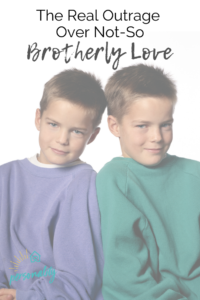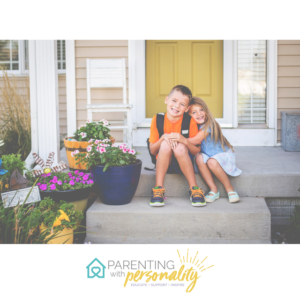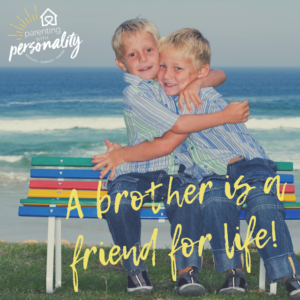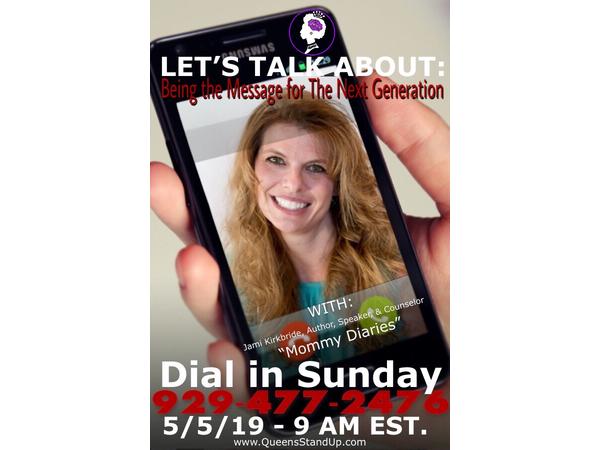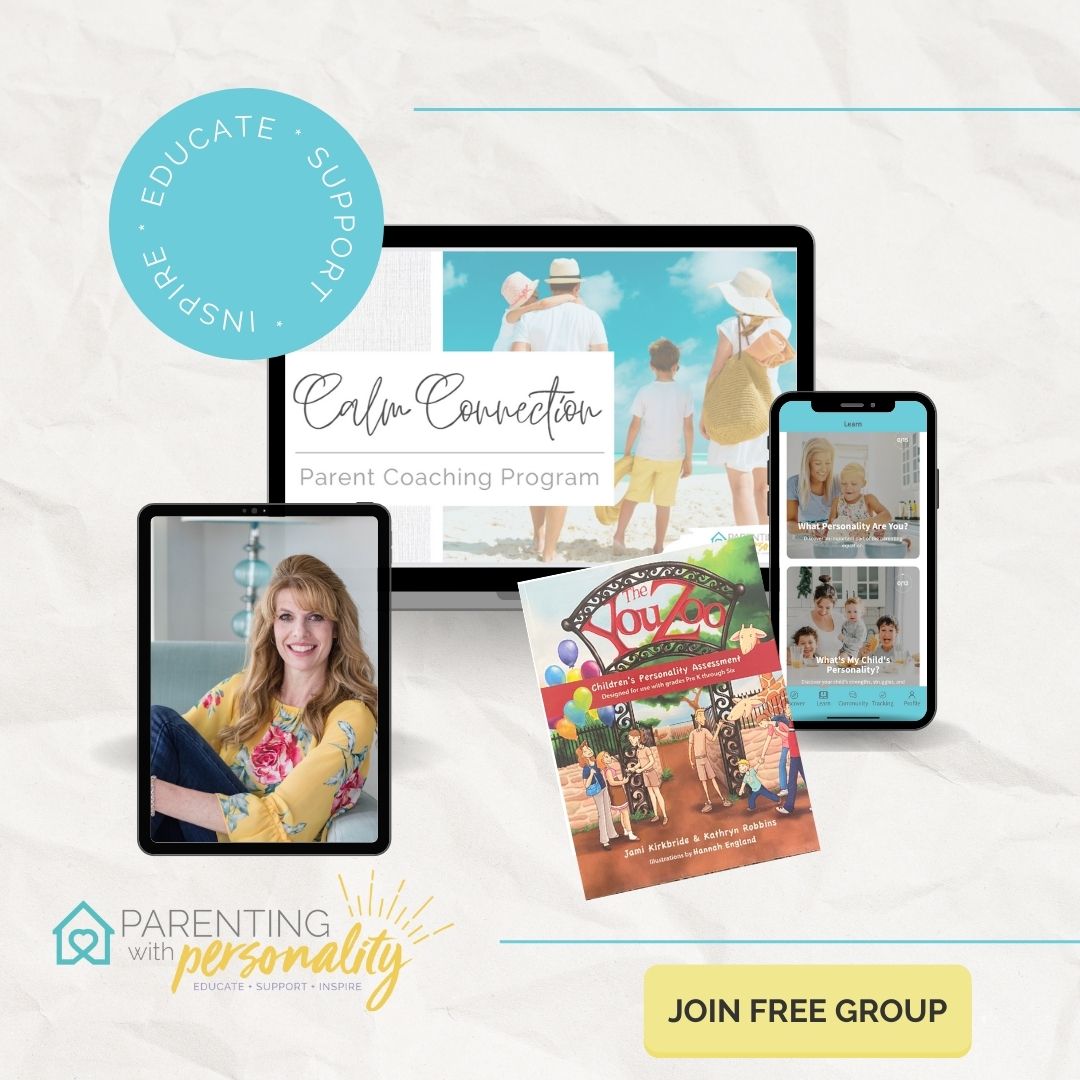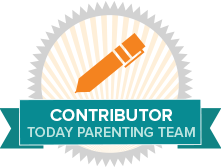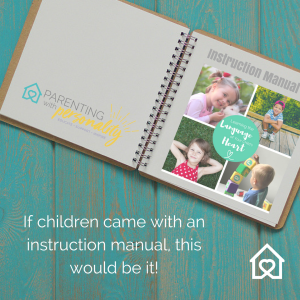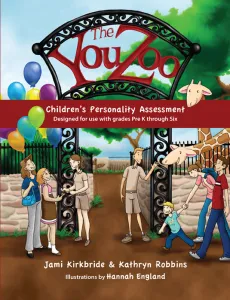Oddly enough on the heels of my blog last week, titled 5 Simple Strategies to Strengthen Sibling Bonds, the big news in parenting this week is the poem that was published in a children’s poetry book titled Brotherly Love. Now one might think that they would have similar content. However, unlike my blog with suggestions on encouraging sibling’s connections, this book of poems geared for 4-10 year olds suggests numerous ways in which a child may attempt to kill a sibling. Seriously. I kid you not.
Kayla Sykes, warned other parents of the book. “If you happen to shop at Cosco please do not buy the children’s book ‘No More Poems,’” she wrote on Facebook. “It includes a horrifying poem with specific details on how to kill your younger sibling. It’s absolutely disgusting.”
I must admit I kind of doubted the story until I read the poem. My jaw dropped. Anger boiled with each stanza I read! I try not to speak too boldly or with loud or offensive opinion, but this is absolutely, undeniably, horribly wrong! Yes, absolutely disgusting!
The poem in question
The poem in the spotlight is from the book titled, No More Poems: A Book in Verse That Just Gets Worse. Indeed, it did get worse and couldn’t nor wouldn’t want to see worse than this. The author Rhett Miller is a singer and songwriter. As the publisher touts, Rhett’s poems “bring a fresh new twist to the classic dilemmas of childhood as well as a perceptive eye to the foibles of modern family life.”
They also claim these “clever wordplays and visual gags” will make for an ideal read aloud. Publisher’s Weekly even adds, “Hilarity runs high; Classroom read-alouds could become uproarious.” I can’t imagine thinking that a poem such as this should be muttered in the quiet of your own closet let alone read aloud in public for shared hilarity. It’s just inappropriate.
Maybe you have not heard about the poem being called to question. The stanzas introduce the ideas of pushing your brother out a window, smothering your brother with a pillow, pouring gas on him and lighting him on fire, drown him in the bathtub, or tie him on an active railroad track. All giving ways to do the awful deeds and what will happen after. The image shows one of the scenes described thus giving the visual of how to do it. Although it is saying not to do it it is also introducing ideas that should not even be thought of in the first place. There are so many levels at which this bothers me.
Children’s Emotional Health at Stake
How does one justify this content in the hands of our children and think it contributes to their mental health and emotional wellness? And it wasn’t just one person! Being an author, I know there are several people that would have edited, illustrated, and worked on this publishing team. I respectfully say, “Shame on you.” To think that not one of them questioned or stopped such a thing. Perhaps I see the issue through not only the eyes of a parent, but also a professional counselor.
First, and foremost, no child needs images like these surging through his/her head. For those who haven’t been exposed to such horror in life, they need not be introduced. Unfortunately, there are traumatized children in this world that are painfully aware of the abuse and darker side of life. They don’t need the reminder. I struggle to think there is any child in this world that would benefit from the thoughts or concepts presented in this poem. No child is enriched by these words or ideas mentally or emotionally.
Children are susceptible to suggestion
Second, children are easily affected by the suggestions of others. You may notice this on a small scale, as your kids watch movies and try out the lines on you or each other. Perhaps you see attitudes protruding in your home that you know are your kids trying something new they learned at school or from a peer. And yes, I have even read a book in our home and then had the exact phrase or action attempted by one of our kids, even just out of curiosity. Despite knowing that it was wrong, when questioned, they may reference the book, movie, or friend, or sibling that they observed or heard it from. Most parents have seen this even in the smallest ways. At times it can be cute or endearing. But often, they try out the things that tend to be questionable. These can cause a ripple effect as one kid tries it out and then another and in the case of big families…another and another and another! Introducing an unhealthy concept unacceptable word, or coping strategy is just not needed, for anyone.
Children with differing brain brakes
Third, some children don’t have the same “brain brakes” that others have and respond impulsively or without thinking through the actual consequences of what they do. While this may sound simplistic, it is far from it. And if you are a parent with a child like this in your home, you shudder at the words and thoughts in this poem. These children don’t need any more ideas in a day that could cause them to lash out at others, behave aggressively, or attempt to control another who does not comply to their wishes. These are not bad kids! We are not talking severe behavior problems, but some of the very kids in your child’s classroom.
These are every day, average looking children that may be struggling with things like autism, depression, anxiety, executive functioning disorder, ADHD, OCD, SPD, ODD, or others. They simply struggle with self-control, emotional dysregulation, impulse control., learning from past behaviors, considering consequences of past behavior, reading social clues, or the ability to stop themselves when they are experiencing overwhelming emotions.
Setting them up for failure?
It might be like setting a diabetic child in the midst of candy, describing it for them, perhaps letting them smell or lick it, and then expecting them to not want it, think about it, talk about it, or do anything because of it. No one would think that appropriate. And it would be easy for that child, in their curiosity, innocence, or immaturity to later reason, “Well it was ok to go there, talk about it, and taste it. Maybe it isn’t so bad for me. An adult was part of that, and they would know.”
It doesn’t take long for the rationalization to lead to desensitization. And what they once would have avoided with no issue can easily become a constant temptation and great concern. And without even realizing it, our lack of saying something or stopping something can come across to a child as approval. Silence can serve as approval without us even being aware of it!
[bctt tweet=”As parents, there is great value in teaching our children how to relate to their siblings both when they are frustrated and when they are not.” username=”personalitymom”]But it is also important that we model for them what healthy coping strategies look and sound like. Entertaining such gross negativity in our minds never helps yield a healthy or happy relationship. And oh the danger of desensitizing our kids to the things this poems suggests are funny or hilarious!
The power of words they hear
This poem is but one important example of where our society is slipping. We want to trivialize words and the power they pack in the hearts and minds of those who hear them. And it’s not just this poem. I see it in movies, in songs, on social media, between kids at school, and more. If you sit and watch some of the kids’ movies of the last few years. How often do they portray sibling relationships as healthy or happy? Often, they speak rudely, disrespectfully, and inappropriately to each other. It can be a constant conversation to cover the things that are being said in even the simple G movies or PG tv shows that you might not allow in your own home. I wish desperately that the media industry would start helping model the relationships that we expect or desire from our kids, ones that contribute to their spiritual, emotional, and mental health and the same for those they interact with.
It makes our job as parents even more important. We need to be vigilant in how we encourage our kids’ to interact with others, social media, and entertainment. Each of these avenues influence them and also gives them the ability to affect others. I would encourage you if you haven’t read last week’s post, that you go read it. Find out those simple strategies that you can put into place to enrich the relationship that your children share with each other.
Time to Speak Up
Maybe this month especially we can take the time to inventory our own situations and settings. Are we infusing in our homes the basis for love and respect for each other? Are there things in our home environment (media included) that are eroding the mental health of our children?
What if this month, we work diligently to contribute to mental health in our children! Let’s focus on the many positive things we can say to help them feel more confident and capable and loved. Need ideas on things to say to your child? Enjoy a free download Words Every Child Needs to Hear and many other free resources when you follow this link and get access to the free library of parenting resources! And maybe in the process of speaking these positive words to our child, we can encourage them to use positive words, productive problem solving, and healthy relating with their siblings as well!
For further reading about children’s mental health, you might enjoy this post as well….
50 Words Every Child Needs to Hear
Please tune in this Sunday as I speak on Blog Talk Radio Queens Stand Up show. The message is Being the Message for the Next Generation Click here to go there now and bookmark it. Don’t forget to add it to your calendar so you don’t miss this special message!

